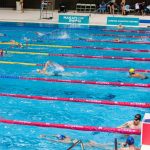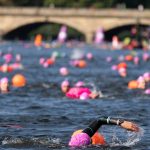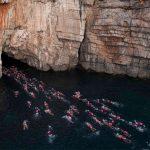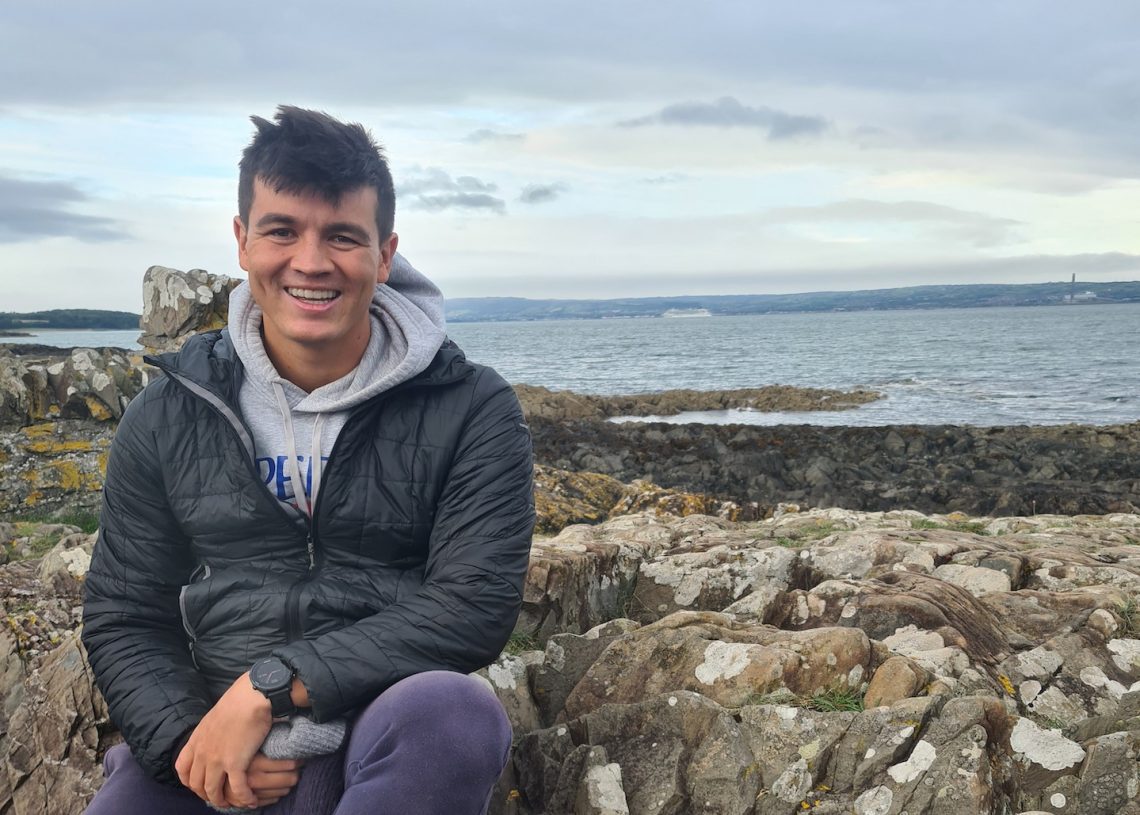
Andy Donaldson: Flying the flag for mental health
Oceans Seven challenger Andy Donaldson tells us why he’s raising money for the Black Dog Institute, a mental health charity that’s close to his heart
Scotsman Andy Donaldson is almost halfway through his Oceans Seven challenge – a marathon that comprises the seven toughest channel swims in the world. So far he has tackled the English Channel, the North Channel and the Cook Strait (for which he set a new world record for the fastest crossing), and he’s currently training for the Molokai Strait, which he intends to swim later this month.
Throughout his challenge, Andy is raising money for the Black Dog Institute, a charity that is pioneering mental health research. For Andy, mental health is an issue that’s close to his heart, having lost friends to suicide and experiencing his own struggles with his mental health.
We pulled Andy away from his training to catch up with him about his Oceans Seven swims, and to find out more about how outdoor swimming has improved his mental health and wellbeing, as well as his physical health.
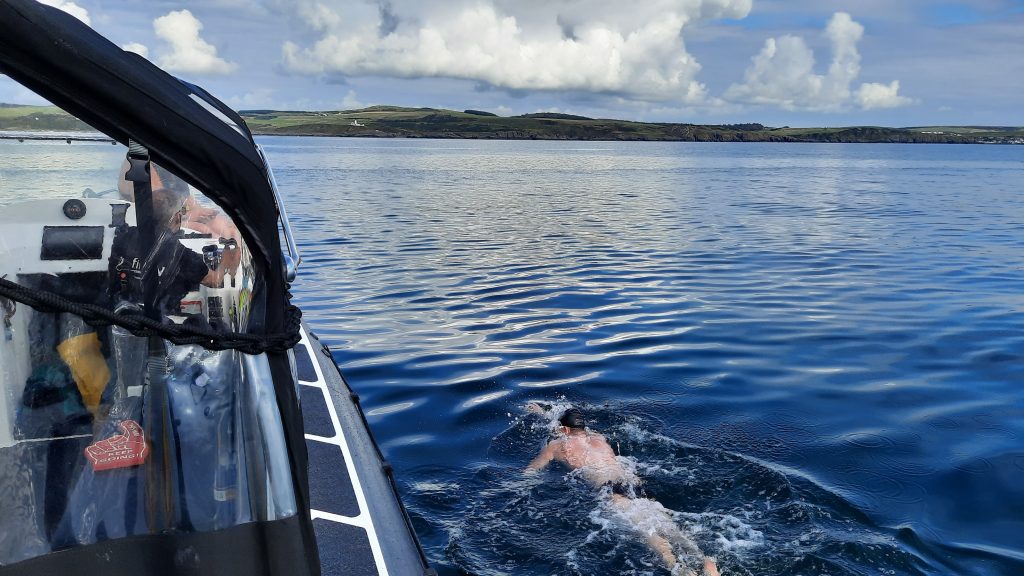
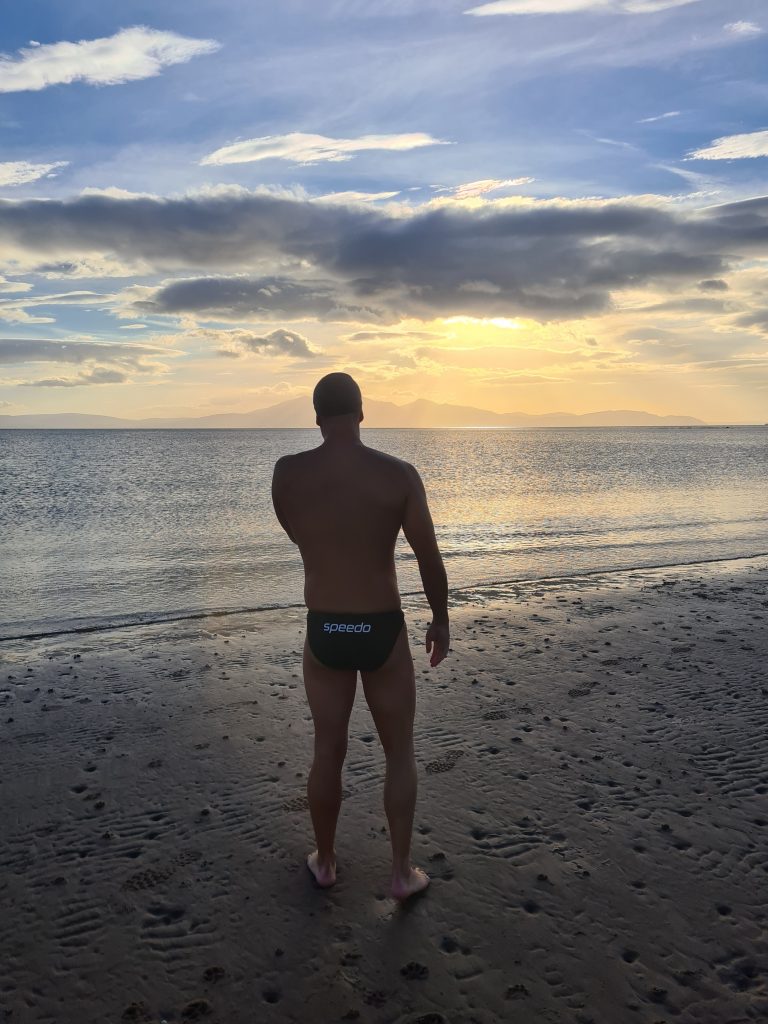
Andy, how are you feeling with a new World Record for swimming the Cook Strait under your belt?
It’s pretty surreal. Breaking a World Record is the sort of thing you dream of as a kid, so to have actually gone and done it is pretty cool and is something I’m still trying to get my head around.
Please tell us more about the Black Dog Institute and why it’s your chosen cause for fundraising.
I feel that mental health is one of the great global challenges of our time. According to the World Health Organisation (WHO), depression is expected to be the leading health concern worldwide by 2030 and more than 700,000 people worldwide die from suicide each year.
It’s a matter that doesn’t discriminate. Anybody can be affected by mental illness, and in many cases, people who are struggling won’t access treatment or help.
In my own life, I’ve known many good people who have struggled with their mental health. My greatest inspiration growing up, my grandfather, was one. And like many, I’ve lost friends to suicide.
I’ve also experienced my own struggles, which adds to making this an issue that is close to my heart.
I wanted to support the Black Dog Institute because they are one of the world’s leaders in mental health research. Added to their education programs and support services, they are actively trying to better understand mental iIlness and how to both treat and prevent it.
And for me, I think that’s important. A great quote from Desmond Tutu that sums it up well is, “There comes a point where we need to stop just pulling people out of the river. We need to go upstream and find out why they’re falling in.” I feel the more we know and understand about mental illness, the better equipped we can be to help others.
You’ve mentioned your own struggles with your mental health. Would you mind sharing a bit more of your experience?
My own struggles came in 2019 and I think it was the result of a mixture of things that had been slowly building up.
After quitting as a swimmer in 2016, having felt that I perhaps hadn’t reached my potential in the sport, I decided it was time to focus on my career. I was pushing myself at work, staying back late, studying for my Chartered Accounting and Financial Planning qualifications, and doing everything possible to progress my career. Other areas of life had suffered as a result, and eventually something had to give.
Looking back, I was not living a balanced life. Perhaps I felt a need to ‘catch up’ for lost time spent pursuing my sporting dreams or to prove myself to my new employers. Either way, I felt burnt out, disappointed with how things had turned out in life, and I knew I needed to make changes.
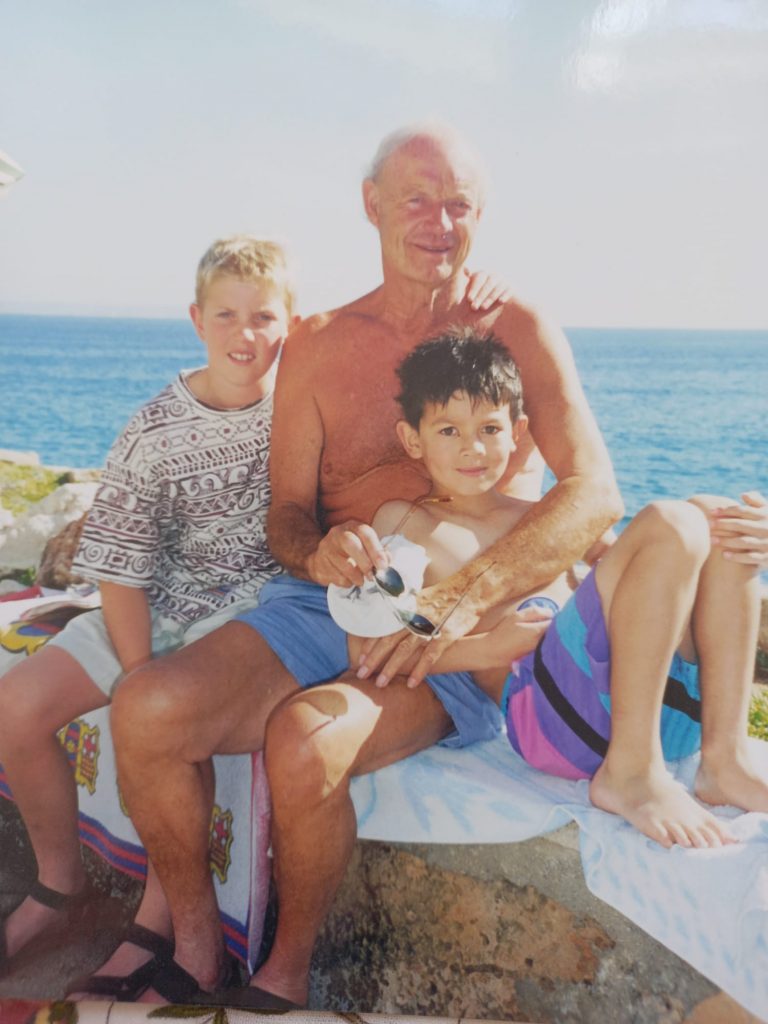
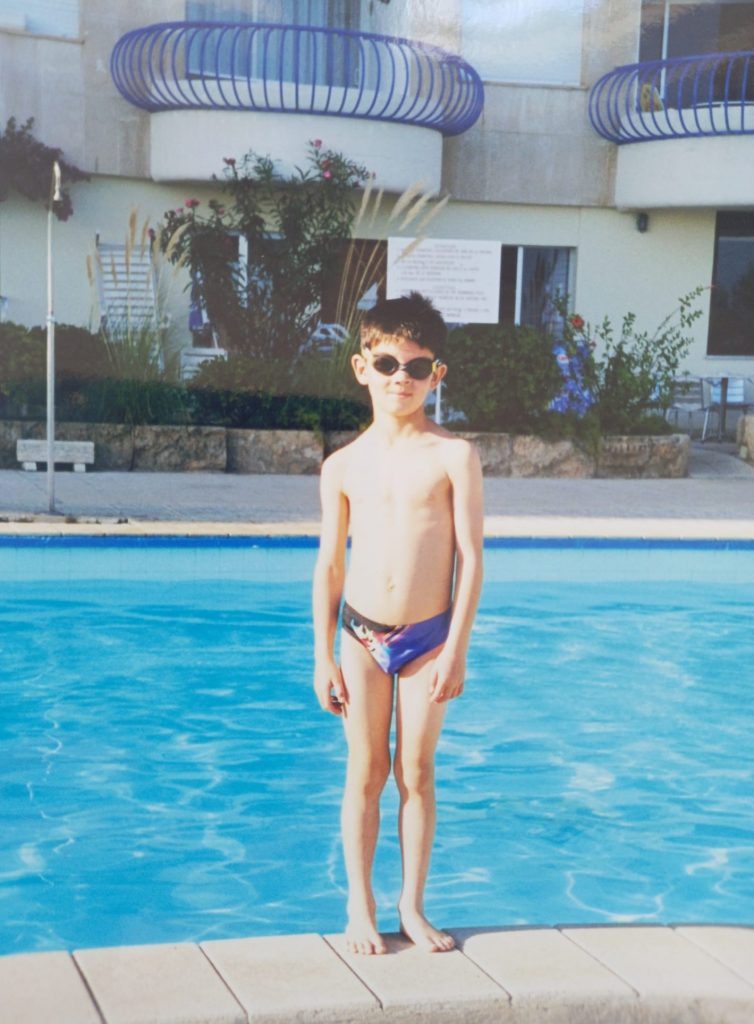
I sought out help, and after counselling and some great support from those around me, I quit my job, packed up my bags, and chose to travel around the world. Taking a yearlong break to travel had always been a dream of mine, and I knew this was a great opportunity to reflect on life, learn about others, and figure out what I wanted to do. As fantastic as travel was, it was not a solution, and I knew that one day I would need to stop running from my problems and tackle them head on.
In March 2020 I was brought back to Perth amid the chaos and confusion of Covid, and I fortunately met an old swimming friend Martin Smoothy down the beach on my first day out of quarantine. He invited me to swim with him daily along the Perth coast and I was amazed in how these significantly impacted my mental health and wellbeing for the better. For me, swimming had its physical benefits, its mental health benefits, and also provided great access to community. It was fantastic!
I imagine these ocean challenges are a huge mental undertaking, as well as a physical one. How do you prepare yourself for this?
Absolutely. These swims are incredible physical undertakings in their own right, but it is the mental aspect that’s perhaps the biggest challenge (I’ve heard others say marathon swimming is 20% physical 80% mental). As a swimmer, it’s an interesting headspace that you need to get into before a swim.
Unlike traditional swimming or races where you know fairly well in advance when you will be starting, sometimes down to the minute, many of these swims are not like that. Swimmers will often have to wait in a window of days for the right tides, conditions, wind, for others to go before them etc. before it’s their turn to swim so dealing with uncertainty is key.
For me and for this aspect in particular, I think it’s ever so important to be surrounded by a good close knit support team. It’s not good to be there waiting on your own stuck in your own mind, so having good people around that you can chat through your thoughts with can really help.
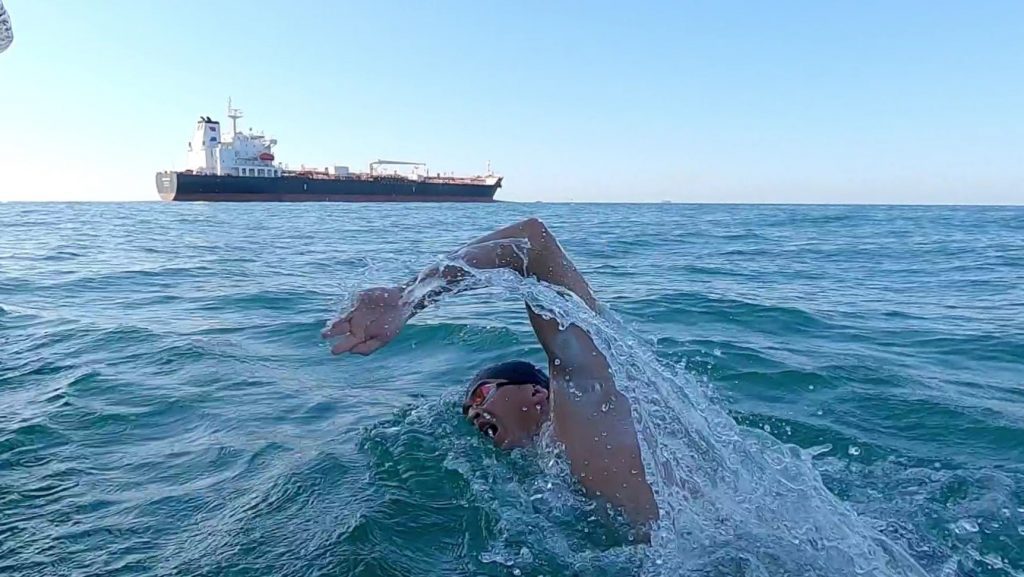
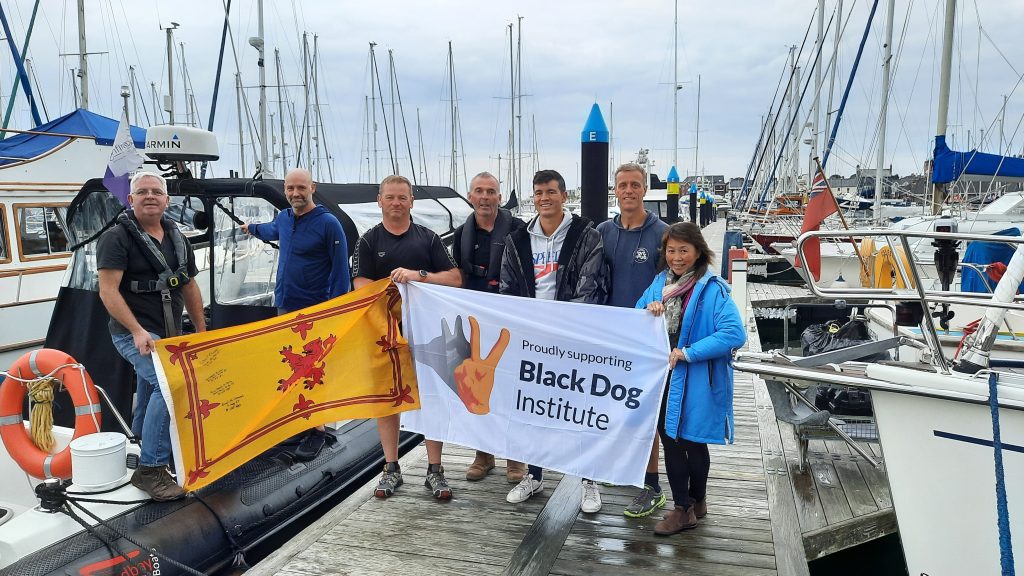
Swims also can have challenging aspects to them such as strong tides, cold waters, sharks etc. and it can be quite nerve-wracking to think about these or to hear others comment about them. In my most recent swim the Cook Strait, I’d overheard a few people say that it was impossible to swim it on a Spring Tide (where more water typically is flowing through a particular channel in line with the lunar cycle). When that’s the case, I think it’s important to acknowledge these comments and people’s thoughts, but ultimately together with your team, you decide on how you choose to react to them.
When it comes to swimming, I think it’s also good to have your race plan set out in advance and ensure everybody on the team knows it inside out. I like mine to be quite thorough and cover many of the ‘what ifs’. For example, if it’s getting cold, increase hot water ratio/add extra sugar or powder to feeds/have feeds every 15 minutes. For me, having a solid plan means that you can have the utmost confidence in what you do, and these thoughts will not be swirling around in your head before or during a swim. You can simply focus on execution.
How do you relax and unwind?
I like to get outside and go for a walk to relax and unwind. I think there’s something about being outdoors or in nature that has a calming effect and I think in today’s world where everyone is ‘connected’, has their phone with them, it’s good to get away from it all every now and again. Outside of that, I place a lot of value on friendships and family, so spending time with them is equally important.
What is it about open water swimming that you find beneficial for mental health?
Adding to above, I think there are a few aspects about open water which are really beneficial. Being out in nature I think has a great impact on things, particularly around water – there are several studies into ‘Blue Mind Theory’, which indicates a positive correlation between mental wellbeing and proximity to water. For me, there are obviously the endorphins that you receive from a workout, but I also love that freeing feeling of being out in the elements, particularly in an open water swim. You’re out there, you don’t have your headphones plugged in, and it’s a great opportunity to spend time with your own thoughts.
There comes a point where we need to stop just pulling people out of the river. We need to go upstream and find out why they’re falling in
Desmond Tutu
Outside of the physical act of swimming, I think there’s a real opportunity to develop friendships through sport and access incredible communities. It’s the dips with friends down the beach, the post-swim coffees, pushing your teammates through a tough set, or supporting others towards achieving their goals. They’re all fantastic opportunities to get to know others better and in turn, be part of something bigger. For me, that’s perhaps been the greatest influence on my own mental health. My favourite memories in this sport have never tended to be solo achievements or endeavours, but in fact those where I’ve been part of a team or surrounded by those closest to me.
What advice would you give to someone experiencing their own mental health struggles?
I think the first thing would be to know that you’re not alone. I know I felt quite lonely and isolated at times, and it can be daunting to talk to someone about it. Though for me, that would be the first thing I would suggest, whether it be speaking with someone you know and trust, or if not, reaching out to a free mental health support line. Talking not only helps others know what you’re going through, but also helps you process and better understand it too. Plus the way I see it, life will always through us challenges and curveballs… we don’t always have to face them alone.
Tell us about your upcoming swim in the Molokai Strait. Is there anything you’re looking forward to, and daunted by?
My next swim of the Oceans Seven is the Molokai Channel in Hawaii. It’s a 42km stretch between the islands of Molokai and Oahu, and it’s renowned for its big swells and deep waters (it’s nicknamed the channel of bones). For me, this is the one I’m perhaps most excited and nervous about. I have never swum that sort of distance before, and I believe it’s another one I’ll attempting during the night, which brings another host of challenges.
One other daunting aspect of this swim is its sea life. In particular the cookiecutter sharks and the Portuguese man o’ wars. We’ll obviously try our best to avoid them and hopefully come through relatively unscathed. Either way, we’ll be giving it our best and doing what we can to fly the flag for mental health and the Black Dog Institute.
Read our interview with Andy about his training for the Oceans Seven.
To find out more about Andy’s Oceans Seven challenge, visit his fundraising page and follow Andy on Instagram for updates.






